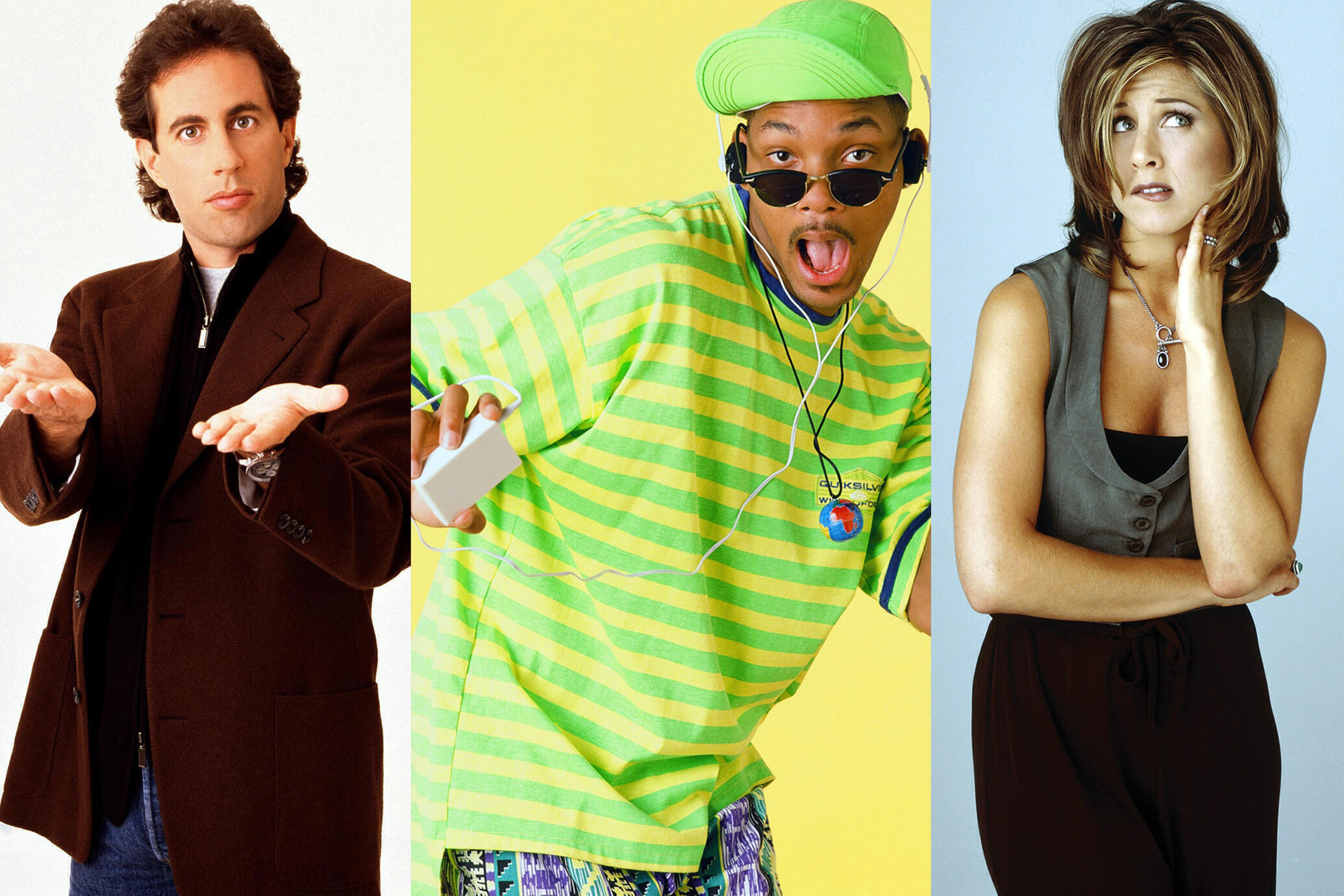
The success of "The Jetsons", and "The Twilight Zone", shows how television can transcend generations. "The Jetsons" was a beloved sitcom that ran for one season (1963) and became a staple of the rerun era. Lucille Ball's iconic sitcom, "The Beverly Hillbillies", lasted five seasons (1951-1957), making them one of the first hit shows.
NBC's "Community"
TV viewers love "Community" as a cult favourite. It features a diverse cast of characters and is set at a Colorado college. The show originally debuted on NBC, airing alongside "The Office," "30 Rock," and "Parks and Recreation." The series was canceled by NBC after five seasons. It then moved to Yahoo! Screen the series' final season. This marks it the first linear show to move to a digital platform. The cast is back with Joel McHale portraying Jeff Winger, Britta Tyler as Britta Harry, Jacobs playing Britta and Brie as Annie Edison, Rash playing Craig Pelton, Jeong as Ben Chang.
The movie for the hit sitcom Community has been long in the works. It will air 7 years after the series ended. Dan Harmon will direct it, who also created the show. It will also feature Joel McHale, Danny Pudi, Alison Brie, Jim Rash, and Ken Jeong.
NBC's "The West Wing"
If you're a political fan, you probably know NBC's "The West Wing" or its fictional president. However, the series is more than just a familiar show and touches on real world events. The episodes cover everything from the 1972 Olympic Games at Munich to the U.S. invasion in Grenada and the Exxon Valdez disaster. Other government officials appear throughout the series, as well as the fictional president.

The show's fifth season explores domestic as well as foreign issues. It also discusses controversy surrounding Supreme Court appointments, and even a bold plan for saving Social Security. The sixth season's "The West Wing," which is focused on President Bartlet's next election campaign, features the sixth season. The show follows several candidates including a Republican in their primary battles.
NBC's NBC's NBC "The Beverly Hillbillies"
NBC cancelled a lot of shows during the Rural Purge. This popular program offered a nonjudgmental look at life outside of city limits. The series ran nine seasons. The critics were not liked by the fans. The show was a success. Here's a look at the series' unique qualities.
The Beverly Hillbillies is a well-known sitcom. The original CBS sitcom, it ran for nine seasons between 1962 and 1971. Paul Henning, an acclaimed cracker barrel surrealist who was also responsible for "Green Acres", as well as other TV hits like "The Real McCoys," created it. Its popularity earned it over 200 episodes as well as a host Emmy nominations. The theme song for NBC's "The Beverly Hillbilly", which airs on NBC, tells the story about Jed Clampett (a widowed mountain man) who sells his drilling rights and becomes president of Oklahoma Oil Company, John Brewster. The Beverly Hillbillies are instant millionaires.
Netflix's "Stranger Things"
Netflix's "Stranger Things," a sci-fi horror show, is set in 1980s Hawkins. The show centers on a group of kids and the supernatural events that occur in the fictional town. Shawn Levy & Dan Cohen created it. They were inspired by Cold War conspiracy theories, pop culture and the era's popular culture.
Netflix's fifth series of "Stranger Things," the fifth season, will be set around 1988 or 1990. It will follow the life of Gaten Matarazzo who will turn twenty in September 2022. Collider reports that writing for season five is expected to begin in August 2022. A tweet by the writers also confirmed that it would be in 2022.

NBC's The Daily Show
In addition to host Jon Stewart, NBC's "The Daily Show" has a number of on-air correspondents. Dave Attell (and Steve Carell), Jon Lovitz; Ed Helms; Kristen Schaal; and John Oliver are some of these correspondents. They all contribute to the show every day.
"The Daily Show" began as a spoof of local television news programs. Lizz Winstead was the creator of the show, which debuted on Comedy Central in 1996. It was promoted as a replacement for Politically Incorrect. ABC had already moved it to their network earlier that year. Madeleine Smithberg was an executive producer on many other comedy series. Lizz Winstead was the show's cocreator. Smithberg, a graduate of Binghamton University, later served as the executive producer of Steve Harvey's Big Time and a talent coordinator on Late Night with David Letterman.
FAQ
Advertisers do they spend a lot of cash on TV?
Advertisers spend a lot to promote their products on television. Advertisers spend a lot of money to get consumers to buy their product.
They do this by spending money on research to find out what people like and dislike about their products.
These data are then used to design ads that appeal and attract consumers by advertisers.
What is the cost of producing a commercial?
Producing a commercial is expensive. It all depends on how long the spot is, the number and location of the actors, and the cost of production.
A 30-second commercial usually costs $20,000-40,000.
How long does it take for a commercial to be made?
The project size will determine how much it costs. For a small project, one person may be needed to film the footage. A large project may require many people to work together.
In general, a 30-second spot usually takes between 2-5 days to complete.
How can ads influence consumer behavior
Two major ways advertiser behavior can be influenced by consumers are:
-
Advertising can lead us to associate certain things and brands with them. If we see a McDonald's advertisement, we might think "McDonald's hamburgers taste better than Burger King."
-
Advertisements show us how to behave. For example, if a commercial tells us to go to a store to buy a new car, we will probably go there.
How does TV Advertising work
Television advertising is an effective method to reach consumers while they are watching television. It is also very economical. Commercial breaks are the most commonly used form of advertising on television. Commercial breaks are typically 30 seconds in length, but can be longer if they feature a special event, such as an award ceremony, sporting match, or election night. Companies often sponsor commercials to promote their products and services. These companies pay for the airtime. Some commercials show product information and others simply display images or music. Programs often have 'product positioning' which allows brands to be featured in the program. This might involve the brand being featured in a scene or providing background information on the product.
Statistics
- With OTT ad revenue set to increase from 45% to 60% over the next decade, AdTech pioneers and early adopters of OTT advertising will reap its benefits in the near future. (clearcode.cc)
- In fact, when the ad first launched, Dos Equis quickly became one of the fastest-growing beers, increasing its sales by over 22%. (qualitylogoproducts.com)
- Not to mention, sales rose an incredible 11% following the launch of this commercial. (qualitylogoproducts.com)
- Television is a great brand awareness tool - Almost every American has a television, with 83 percent of adults having two or more, and American households keep their televisions on for 8.1 hours each day on average. (marketingevolution.com)
- To get estimated costs for airing a 60-second TV commercial in different regional markets, check out the following figures in this TV ad pricing chart from the media experts at Casual Precision. (fitsmallbusiness.com)
External Links
How To
How can I make money on my TV Commercial?
There are many ways to make money with your TV commercial. These include:
Advertising - Any paid promotion that encourages viewers or makes them watch your commercial.
Merchandising – After seeing your commercial, this refers to the sale of merchandise related your product.
Licensing-This refers to licensing your commercial for other businesses to use in their own promotions.
Syndication is the process of syndicating your commercials to other networks.
Advertising revenue can be used to pay production costs, and it can also be used for future funding.
Advertising can generate significant income, but it doesn’t always guarantee a return.
To make money with your TV commercials you need to first know what advertising options are available. You should then learn about each type of advertising before you choose one.
Next, decide where you want to place your commercial. For example, do you want to advertise during popular programs such as sitcoms or sports games? Or perhaps you'd prefer to target younger demographics by placing your commercial near children's shows.
You must decide whether you would like to create your own commercial or buy one from someone else. If you are planning to create your own commercial you will need to find a professional who can script the production, direct the actors, and edit it. However, purchasing a pre-made commercial can save you valuable time and money.
After deciding how you want to go about creating your commercial, you should start looking into different options. Here are some factors to consider when choosing an advertisement method.
Target Audience- This is one of the most popular ways to advertise. Advertising to teens, young adults and women over 50 could be an option.
This is where the key lies in finding the right audience to place your advertisement. Don't waste your money on targeting people who don't have a need for your product.
Placement - You need to consider how many people are likely to see the ad when you decide where to put it. You might place your commercial near the start of a sporting event if you are planning to advertise during that event. This will ensure that everyone who attends the event sees your commercial.
You may need to consider other options if your goal is to reach people living outside of your region. To broadcast your commercial to a wider audience you could use satellite dishes or cable television.
Production Costs – Most companies spend between $5,000-10,000 per minute on commercial airtime. To cover this cost, they charge advertisers a fee based on the length of the spot.
If a company wishes to broadcast commercial airtime for 30 seconds, they will be charged $1,500. They will be charged $2,500 to run for 60 minutes.
If you plan to make your own commercial, you can expect to spend anywhere from $3,000 to $15,000. You will also need to hire a writer, producer, editor and actor.
Time Frame - Another consideration to make when selecting an advertising method is how much time you will need to complete it. You won't have the time to wait for commercials to air after the Super Bowl if you want to sell products within one week. You'll have to choose a medium that makes it easy to advertise.
However, to reap the benefits of long-term exposure, it is important to put a lot of effort and time into creating a great commercial.
Cost per view - You should also consider the cost of each viewer viewing your commercial. This depends on the size of the audience and the number of views you receive.
For example, a 30-second commercial with 10 million viewers will run more than a 1-minute commercial.
To determine which option works best for you, you'll need to compare all of these factors. Here are some tips to help get you started once you've settled on a strategy.